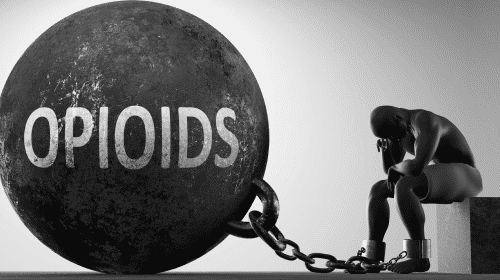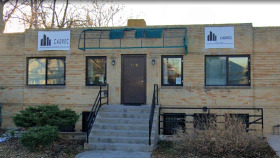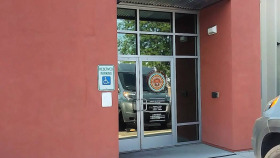Expert Insights
I recently learned that Colorado has a recovery high school in Denver, serving kids with substance use disorders. I think it’s a brilliant idea that someone who has recovered from addiction is now the director of recovery at 5280 High School. He’ll have the lived experience necessary to be able to tell students his own experiences of addiction. I believe there is great power in the words “me too,” because you feel like you’re not alone. Had I experienced a mentor like that in school I don’t think my addiction would’ve gotten so bad or lasted until my 30s, when I eventually hit a rock bottom. These kids have a new lease of life before the real damage of addiction takes hold and I think that’s a really great thing!
~ Olivia Pennelle
How Expensive is Drug Rehab in Denver?
When it comes to price, many factors can affect the cost of addiction treatment in Denver. These can include:
Type of rehabilitation
Amenities offered at the facility
Length of your stay
Facility of your choice
In the state of Colorado:
The average cost of an inpatient or residential program was $56,413 per individual.
The average cost of an outpatient program was $1,705 in 2016.
However, your care may be far cheaper than these averages, especially if you have insurance or are able to find a state-funded drug rehab in Denver.
How Does Denver Compare in Alcohol and Drug Use?
Denver, Colorado, is home to more than 750,000 residents, making it the 19th-most populous city in the United States. In 2020, 1,477 Coloradans died of drug overdoses – the most overdose deaths ever recorded in the state. Fentanyl overdoses have become more common as well, more than doubling between 2019 and 2020 and increasing by 10 times since 2016. Even though drug overdoses are on the rise, there are over 170 accredited drug rehab centers in Denver and the surrounding area working to combat the problem.

14.1% (approximately 83,000) of young adults aged 18 to 25 had an illicit drug use disorder over the past year

5.4% (approximately 259,000) of individuals aged 12 or older had an illicit drug use disorder over the past year

Alcohol use disorder among those aged 12 and older was at 8.5% (approximately 407,000 people)

Among those age 12 and older, opioid use disorder averaged 5.3% (approximately 274,000 people).
In Denver, of those suffering from substance use disorders, 77% used heroin, 70% used methamphetamines, and 83% used more than one drug.
Alcohol and Drug Laws in Colorado
If you are caught with or using drugs and/or alcohol illegally in Denver, the legal system will determine the outcome of your case. In Denver, it is considered a misdemeanor if you are caught with a small amount of certain drugs like heroin, fentanyl, or cocaine. A conviction can result in jail time from 6 to 18 months and a monetary fine.
Driving while under the influence of alcohol in Denver can result in the suspension of your driver’s license, jail or prison for up to six years, public service requirements, and fines. In some cases, a portion of your jail sentence can be suspended if you agree to go through an alcohol rehabilitation program.
911 Good Samaritan Law
This law states that a person is immune from criminal prosecution for an offense when they report an emergency overdose. This includes Colorado residents who call 911 or remain at the scene of the event and the person who experienced the overdose.
Naloxone Standing Orders
Enacted in 2015, this law allows licensed prescribers to provide Naloxone to Colorado residents who may experience an opioid overdose, even without a prescription. The goal is to increase access to this overdose antidote and reduce the number of overdose deaths.
Needle-Stick Prevention
This law allows police officers to make an exception to arrest and charges for the crime of possession of drug paraphernalia if the Colorado resident informs the officer that they have a needle, syringe, or other sharp objects on their person or in their home or vehicle—prior to being searched.
Syringe Exchange Programs
In Colorado, nonprofits and health facilities can operate a syringe exchange program without prior board of health approval. Organizations and participants in these are also exempt from paraphernalia laws.
Marijuana Laws
Colorado legalized recreational marijuana in 2012. Adults at least 21 years old may buy up to 1 ounce of retail marijuana from a licensed store and possess up to 2 ounces at a time. It is illegal to drive in Colorado after consuming marijuana. State law sets the impairment level for marijuana at 5 nanograms of THC per milliliter of blood.
Resources
- Denver, Colorado Population 2020 (Demographics, Maps, Graphs). (n.d.). Worldpopulationreview.com.
- Vital Statistics Program | Department of Public Health & Environment. (n.d.). Cdphe.colorado.gov.
- Substance Abuse and Mental Health Services Administration. (2020). Behavioral Health Barometer: Colorado, Volume 6: Indicators as measured through the 2019 National Survey on Drug Use and Health and the National Survey of Substance Abuse Treatment Services. [Ebook] (6th ed.).
- U.S. Department of Veterans Affairs. (2022). Veterans Affairs. ptsd.va.gov.



































